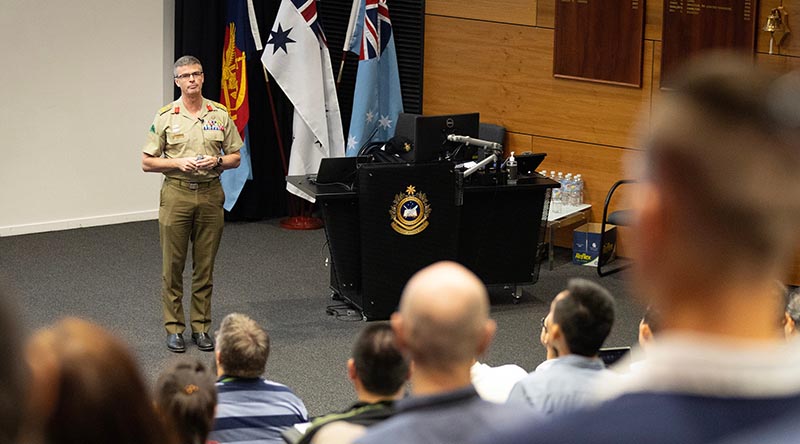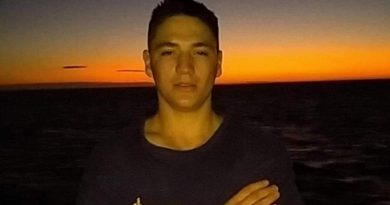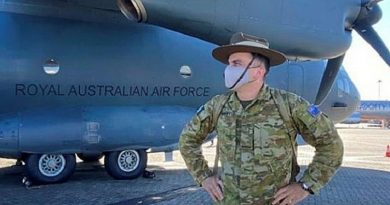Singing praises of Defence linguistics

You might not expect to sing songs with your foreign counterpart, but participants at the recent Defence Linguistics Conference learned there’s more to different cultures than just words and phrases.
CAPTION: Director General International Engagement Strategy Brigadier Craig Shortt addresses the inaugural Defence Linguist Conference held at the Australian Defence College, Canberra. Story and photo by Sergeant Matthew Bickerton.
170 ADF linguists from around Australia attended the conference in Canberra from 13-14 April.
It covered a range of topics, including the importance of developing cultural intelligence, new policy, practical advice and anecdotes from veteran linguists.
Director General International Engagement Strategy Brigadier Craig Shortt said in his opening address that the relationships linguists established were key to Defence’s ability to know how and where the organisation should concentrate its foreign-engagement efforts.
“Languages are a long-term investment. We recognise more and more that we need to grow it, provide opportunities to practise it and ensure linguists feel supported,” Brigadier Shortt said.
Director General Pacific and Timor-Leste Brigadier Nerolie McDonald told a story from when she was learning Vietnamese in Vietnam.
“They asked me in my Vietnamese class what I wanted to do with my life.
“What I thought I said was, ‘I’d like to travel to lots of countries’, but what I actually said was, ‘I’d like to shower with lots of people’.”
Vietnamese is a tonal language and a mistake in the tone can cause the wrong word being spoken.
She likened the methods in learning a new language to that of her child’s journey in learning to read.
“Learning a language is the same at any age.
“It’s a challenge, and it takes commitment, memory and practice,” Brigadier McDonald said.
Warrant Officer Class 1 David Hayes, from HQJOC, recounted his time in Indonesia as assistant Army attaché highlighting the importance in having a strong cultural understanding to give translating greater context.
He said, for example, in Indonesia there was great cultural importance placed on singing together.
“That can be a new experience sometimes for our senior officers who come and visit and are expected to sing a song with their Indonesian counterpart,” Warrant Officer Hayes said.
He then showed an image of the Chief of Staff of the Indonesian Army and the current Chief of the Australian Army singing together.
The ADF has about 1100 linguists, ranging from intermediate to advanced.
Army makes up almost half of all linguists, with RAAF and Navy at 28 per cent and 23 per cent, respectively.
It’s this capability that cannot be underestimated, Brigadier Shortt said, in helping Defence understand what’s happening around the world in competition, conflict or crisis and to assist with shaping the delivery of Australia’s interests.
.
.

.
.





